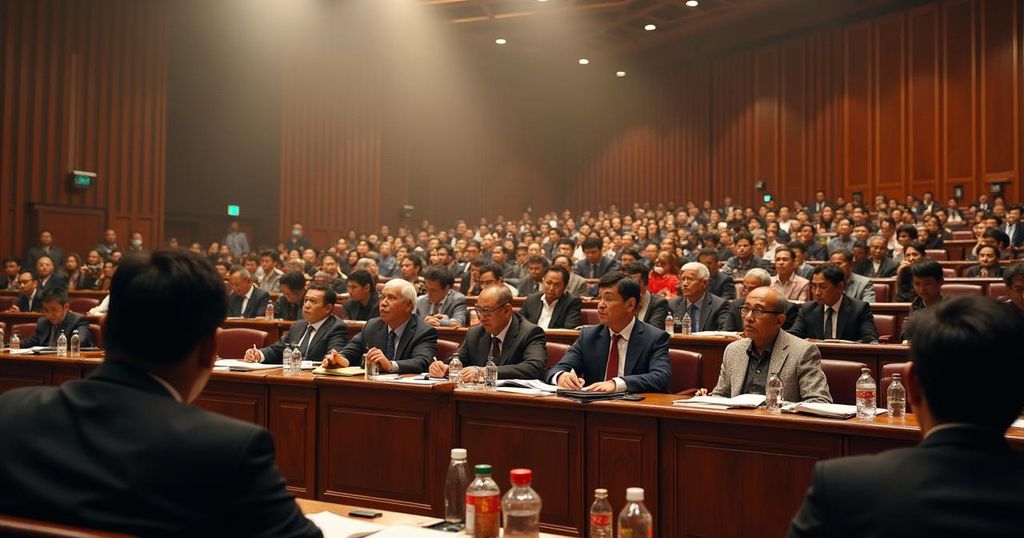The International People’s Tribunal in The Hague found Indonesia guilty of crimes against humanity regarding the 1965-1966 mass killings, which resulted in the deaths of 500,000 to one million suspected communists. The ruling called for accountability, including a formal apology, investigations into the killings, and reparations for victims, marking a significant step toward addressing historical injustices.
The International People’s Tribunal in The Hague issued a significant ruling on July 20, declaring Indonesia culpable for crimes against humanity related to the mass killings that occurred between 1965 and 1966. Estimates suggest that these violent purges led to the deaths of 500,000 to one million individuals accused of being associated with the Indonesian Communist Party (PKI). This brutal military-led campaign facilitated the establishment of former President Suharto’s New Order regime. The tribunal’s ruling was delivered by presiding judge Zak Yacoob, who stated that Indonesia must be held accountable for ten severe human rights violations committed during those years, which include genocide against PKI members and sympathizers, as well as individuals associated with President Soekarno and the Indonesian National Party (PNI). In his remarks, Judge Yacoob emphasized, “The State of Indonesia is responsible for and guilty of crimes against humanity… particularly by the military of that state through its chain of command, of the inhumane acts.” The tribunal identified additional human rights violations committed by the Indonesian state, including destruction, imprisonment, slavery, torture, forced disappearances, sexual violence, banishment, false propaganda, and genocide. He further asserted that all these actions constituted part of a systematic and widespread attack against the PKI and its affiliates, initiated through a campaign of disinformation. Judge Yacoob noted the state’s overarching responsibility in preventing these inhumane acts and punishing the perpetrators. Even in instances of “spontaneous” local actions, the state remains obligated to intervene and hold responsible parties accountable. As part of its recommendations, the tribunal urged the Indonesian government to offer a formal apology to all victims and their families for the crimes against humanity committed during the 1965 events. It called for comprehensive investigations and prosecutions of those responsible, as well as ensuring compensation and reparations for victims and survivors. The tribunal also highlighted the need for the Attorney General to act on a 2012 National Human Rights Commission report calling for investigations into these grave human rights violations. Furthermore, it demanded measures be taken to rehabilitate surviving victims and protect their rights legally and internationally.
The mass killings in Indonesia during 1965-1966 were marked by extensive violence and politically motivated persecution, primarily targeting members of the Indonesian Communist Party and their supporters. Following a failed coup, a systematic purge was launched, resulting in immense loss of life and suffering. The rise of Suharto’s regime during this period was characterized by the consolidation of power through anti-communist sentiment, leading to widespread human rights abuses that have yet to be formally addressed by the Indonesian government. Over the decades, there have been calls for justice and accountability, but substantive actions have been lacking, making this tribunal’s ruling a crucial moment in advocating for historical acknowledgment and reparation.
The International People’s Tribunal’s declaration of responsibility upon Indonesia for the mass killings of 1965-1966 marks a pivotal resolution regarding historical accountability and justice. It not only highlights the severe human rights violations committed during this period but also emphasizes the need for the Indonesian state to take responsibility, offer reparations, and ensure that victims’ rights are protected. The recommendations provided by the tribunal reflect a step towards addressing long-standing grievances and are crucial for the healing and rehabilitation of affected individuals and families.
Original Source: jakartaglobe.id






